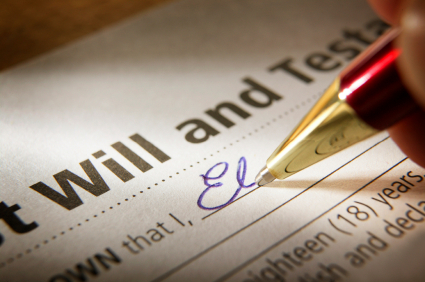By Carla Hindman, Director of Financial Education, Visa Canada
One of the most important decisions you’ll make when writing your will is determining who should be named executor of your estate. Even if you’re just leaving behind household goods and a small savings account, someone – whether appointed by you or the government – must settle your affairs.
Some people consider it an honour – or duty – to take responsibility for ensuring that their loved one’s final wishes are carried out. But serving as an executor can be onerous and time-consuming, even for those with a strong financial or legal background. In a worst-case scenario, executors who act imprudently or in violation of their duties can be sued by beneficiaries and creditors.
Plus, you’ll likely have to deal with the process of locating and determining the value of the deceased’s assets, paying final bills and taxes, and distributing what’s left to the heirs.
Before you agree to serve as an estate’s executor, make sure you understand what will be required of you. Major responsibilities often include:
- Manage paperwork on behalf of the estate, including the will, trusts, insurance policies, bank, investment and retirement account statements, birth and death certificates, marriage, prenuptial agreement or divorce papers, real estate deeds, tax records, etc.
- If the estate is complicated or likely to be contentious, you may want to hire a lawyer and/or accountant to help navigate the maze of paperwork.
- Notify all interested parties of the death. These might include: government agencies (Social Insurance, Canada Post, Ministry of Transportation); financial institutions; creditors; current and former employers; retirement plan administrators; investment firms; insurance companies; doctors and other professionals; landlord or tenants; utilities, etc.
- You’ll often need to send a copy of the death certificate to close out accounts, claim insurance benefits, change ownership of assets or accounts to the estate or a beneficiary, so order ample copies.
- Locate assets, including personal property, bank accounts and safe deposit box contents, and ensure that they are protected until sold or distributed to inheritors. This may involve updating home and car insurance, changing locks, overseeing appraisals of property that must be sold, etc.
- Collect money owed to the estate, such as outstanding wages, insurance benefits, retirement plan benefits and rents.
- Notify heirs about their bequest.
- File the deceased’s final tax returns, as well as managing estate tax, if applicable.
- Once probate has closed, you will distribute the remaining assets to named beneficiaries.
- Because acting as an executor can be very time-consuming (often taking months or years), you are allowed to charge the estate a fee for your time – usually a percentage of the estate’s value.
In short, both parties should thoroughly understand what’s required of an estate’s executor to make sure it’s a good fit. There’s no shame in saying no if it’s beyond your abilities, and plenty of professional help is available – and advisable – if you do need assistance.
Article used with permission from Practical Money Skills Canada
This article is intended to provide general information and should not be considered legal, tax or financial advice. It’s always a good idea to consult a tax or financial advisor for specific information on how certain laws apply to your situation and about your individual financial situation.

